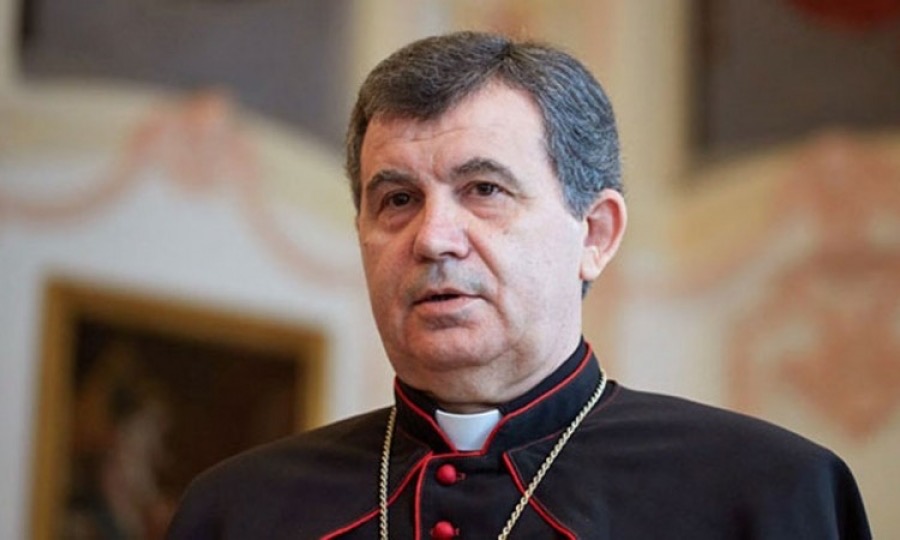 Every era has both good and bad moments, but fortunately there are always people are trying to brighten up those bad moments. A century ago in Herzegovina lived Didak Buntic, a Franciscan worker, an educator and a builder who will remain remembered for saving 15,000 Herzegovinian children during the First World War from hunger.
Every era has both good and bad moments, but fortunately there are always people are trying to brighten up those bad moments. A century ago in Herzegovina lived Didak Buntic, a Franciscan worker, an educator and a builder who will remain remembered for saving 15,000 Herzegovinian children during the First World War from hunger.
Didak Buntic was born near Citluk in 1871. He has done a lot since building church in Siroki Brijeg, teaching illiterate people at that time to read and write, teaching people to farm, etc. He would say “Could you go there in the world, find a more active, healthier and more healthy nation than our Herzegovinian one, to whom nothing is missing but education?”
Ante Maric, a priest who knows Buntic’s work, speaks about Didak’s part in history while sitting in the courtyard of the Franciscan monastery in Mostar, next to the Parish Church of St. Peter and Paul, where Didak Buntic himself lived. Ante is interested in Didak because he came to the Franciscan province in Siroki Brijeg where Didak spent most of his time.
“Didak as a young priest came to the Franciscan classical gymnasium in Siroki Brijeg in 1895 and remained there until 1919. He spent two thirds of his life at that educational institution. It is important to say that he was an educational worker and that he expanded the gymnasium from two classes to eight,” Ante Maric tells us, emphasizing Didak’s efforts to create a study program for those who do not want to be priests.
It was the time of the First World War, when the Austro-Hungarian Empire was tapping the occupied areas. An occupier is always an occupier, our speaker tells us. All resources were used for the war effort, so only old people, women and non-combatants were at home.
The drought led to unprecedented hunger
“The drought was major in 1916 in these areas, as can be confirmed by a letter from David Nevistica to the queen of Citi, where she prays for help, saying that rain did not fall from April to October. People were dependent on what they grew and because it not necessary to slaughter cattle for food, they ended up with no livestock or milk. Today, according to the archives, it can be accurately read which degree of hunger had ruled at that time,” says Ante.
Didak Buntic knew who was the most affected by the famine, and he designed and organized a march that entered history.
“It was September 10th, in this monastery where we are now sitting, that almost 400 children came from here to move to Slavonia.” Didak organized a train with General Stjepan Sarko who was in charge of this area of the empire. The train transported them to Bosanski Brod. The ecclesiastical institutions found them foster parents and each child was cleaned as much as possible before leaving,” he says.
A special dimension to this endeavor is the fact that not only Catholic children were included. Didak took care of everyone. The call from Croatia that came was sent to Progress for the Catholic, the Gajret for the Muslims and the Orthodox Priest of Letica.
(Source: Klix.ba/ photo jutarnji)


















